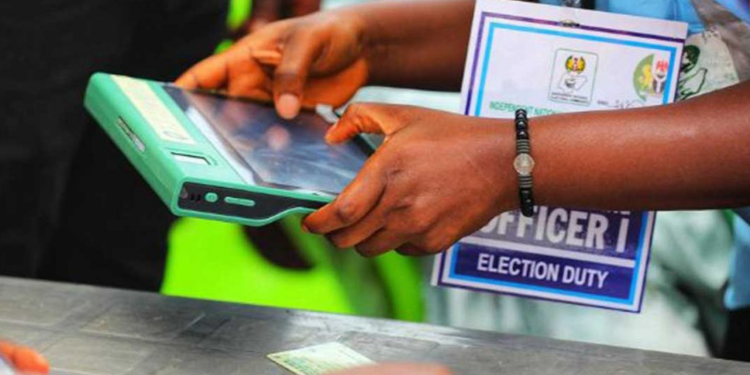As was the the case in the general election held February 25 and March 18, the just concluded off-cycle gubernatorial election in Kogi, Imo and Bayelsa states recorded widespread violence resulting in deaths. As if this was not bad enough, there were reported cases of vote buying and selling, ballot boxes and Bimodal Voter Accreditation System (BVAS) machines snatching and in some cases, destroyed.
Expectedly, the number of election petitions going to the tribunal is getting high by the day even as election offenders are roaming free without prosecution. The outcome of the election and, in particular, the integrity of the Independent National Electoral Commission (INEC) has also come up for scrutiny. With all these, there are renewed calls for the prosecution of election offenders.
While it is noteworthy that a number of electoral reforms demanded in the aftermath of the 2019 elections have been carried out or captured in the new Electoral Act 2022, one knotty issue still haunting elections and their outcomes in the country is that of election offenders and the perceived ineffective prosecution processes.
Following the February 25 Presidential and National Assembly elections, the immediate past Inspector-General of Police, Usman Baba, during an election security review conference with senior police personnel in Abuja, revealed that police recorded and responded to 185 major incidents and arrested 203 electoral offenders and with 18 firearms recovered.
“Similarly, a total of 304 electoral offences were recorded during the governorship and state houses of assembly elections, with a total number of 578 arrests recorded and 48 firearms recovered.
“This included 161 suspects in Kano State, 45 in Lagos State, 49 in Sokoto State, 16 in Cross River State, 22 in Jigawa State, 17 in Nasarawa State and 18 in Oyo State, among others.
He said the cases were at various stages of investigation at the Nigeria Police Electoral Offences Desks, adding that they will be concluded and processed to the Legal Department of the Independent National Electoral Commission for prosecution in due course.
The former IGP, however, promised that the police would collaborate with INEC to ensure that all these electoral offenders were expeditiously and transparently prosecuted not only in the interest of criminal justice, but in furtherance of the vision to sanitise the “democratic space.”
Arising from the keenly monitored off – cycle election , the CDD Election Analysis Centre (CDD-EAC) reported extensive incidents related to the abuse of the powers of incumbency, high levels of vote-buying by politicians, use of identity markers for political manipulation, orchestrated disinformation campaigns and failure of some institutions such as INEC, political parties and security agencies to perform their duties creditably.
The Nigeria Civil Society Situation Room reported high levels of result falsification and other forms of electoral irregularities in the governorship elections in the three states and raised serious questions about the credibility of the election and the future of democracy in Nigeria.
Nigerians had expected that the lessons learnt from the 2023 general elections by stakeholders, particularly the Independent National Electoral Commission (INEC), would have served to improve the conduct of the off -cycle ones. Unfortunately, this seem not to be the case, as the election proved to be another huge disappointment.
The governorship elections conducted in these states represent a major setback for Nigeria’s electoral democracy.
Since the beginning of the Fourth Republic in 1999, there is hardly any election that has not been characterized by election offence in one form or the other.
Successive elections at the national, state and local council levels have been marred by irregularities with political players resorting to violence in order to outsmart one another.
Undoubtedly, electoral offences remain a major threat to credible, free and fair elections in Nigeria, as they often heighten political tension and trigger violence.
Such election offences include inputting fictitious names in the voters’ register, illegal compilation of voters’ lists, underage voting, vote buying and selling, illegal possession of ballot boxes, multiple voting, and ballot box snatching, among others.
But for whatever reasons, many of the electoral offenders have always remained unpunished.
While some observers have blamed the nation’s weak justice system for poor prosecution of electoral offenders, there are arguments that INEC, as the umpire, cannot be the same body prosecuting electoral offenders.
In a presentation at the Royal Institute of International Affairs, Chatham House in London earlier in January this year, the Independent National Election Commission (INEC) Yakubu Mahmoud described how helpless INEC was on the issue of prosecuting electoral offences.
He said: “Although the commission is empowered by the Electoral Act to prosecute electoral offences, it lacks the power and resources to make arrests and thoroughly investigate electoral offences.”
“Efforts at mitigating electoral malfeasance can only become effective with the arrest, prosecution, and sanctioning the ‘mother spiders’ to end their reign of impunity,” Yakubu said.
“It is for this reason that INEC supports the establishment of the Electoral Offences Commission and Tribunal imbued with the responsibility of prosecuting electoral offences as recommended in the reports of various committees set up by the Federal Government, notably the Uwais Committee (2009), the Lemu Committee (2011) and the Nnamani Committee (2017).”
A year ago, this paper called on the National Assembly to expedite action and speedily pass the Electoral Offences Commission Bill 2021, for assent by former President Muhammadu Buhari.
The bill, if it had been passed into law, would have empowered the commission to investigate electoral offences, prosecute offenders and maintain records of all persons investigated and prosecuted. It also prescribes a 20-year jail term for persons found guilty of snatching ballot boxes during elections.
In our opinion, the country cannot afford to wait any longer for a bill that the National Assembly is obviously not interested in, for obvious reasons, while perpetrators of electoral offences walk free.
The Yakubu – led INEC should walk the talk, exploring the Electoral Act 2022 to mete out punishment to those electoral offenders who contravened the law.
Not doing so, in our considered opinion, is further emboldening perpetrators while undermining democracy.



